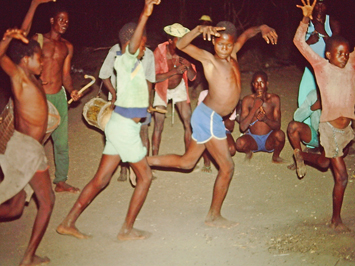Buli Series 5 - Common Words M -- Ngm

Ni ngaangaa! Maa puusi waa-meena ale ngma nye ni tia. Gyinla ka zuma dai, Gyuun chiika daa-nganu, bena tusa-ngaye ale pisiye wa po (Friday, June 5 2020). Ti gyinla le ngman tom ti karungku po a nyini M aga paari Ngm. Karung tii ate ti zamsi daanwa la bo ka de: Pillimka karungku abo dela Karung kui ale sai buye la (A-D) bo dela Karung kui ale sai buta la (E-H) bo dewa Karung kui ale sai bunaansiwa la (J-L) bo dela The previous lessons may be accessed through the links above. M Ma – ma (mother), ma-biik (maternal relative), ma to eat hastily, to gobble up, to gulp down (only for humans), maga (a little, a bit of something), maglim (dew), malim[ka] (familiarity, acquaintance), malim (dysentery, diarrhoea with mucus), manchesik (match, matches, box of matches), man-gali (in a different way, in an odd way, in an unusual way), maari, (to help, to support, to assist, to aid), masa (to be sweet, palatable, tasty, delicious), masim (sweetness, goodness, pleasant taste, luxury), maauk (rubb




